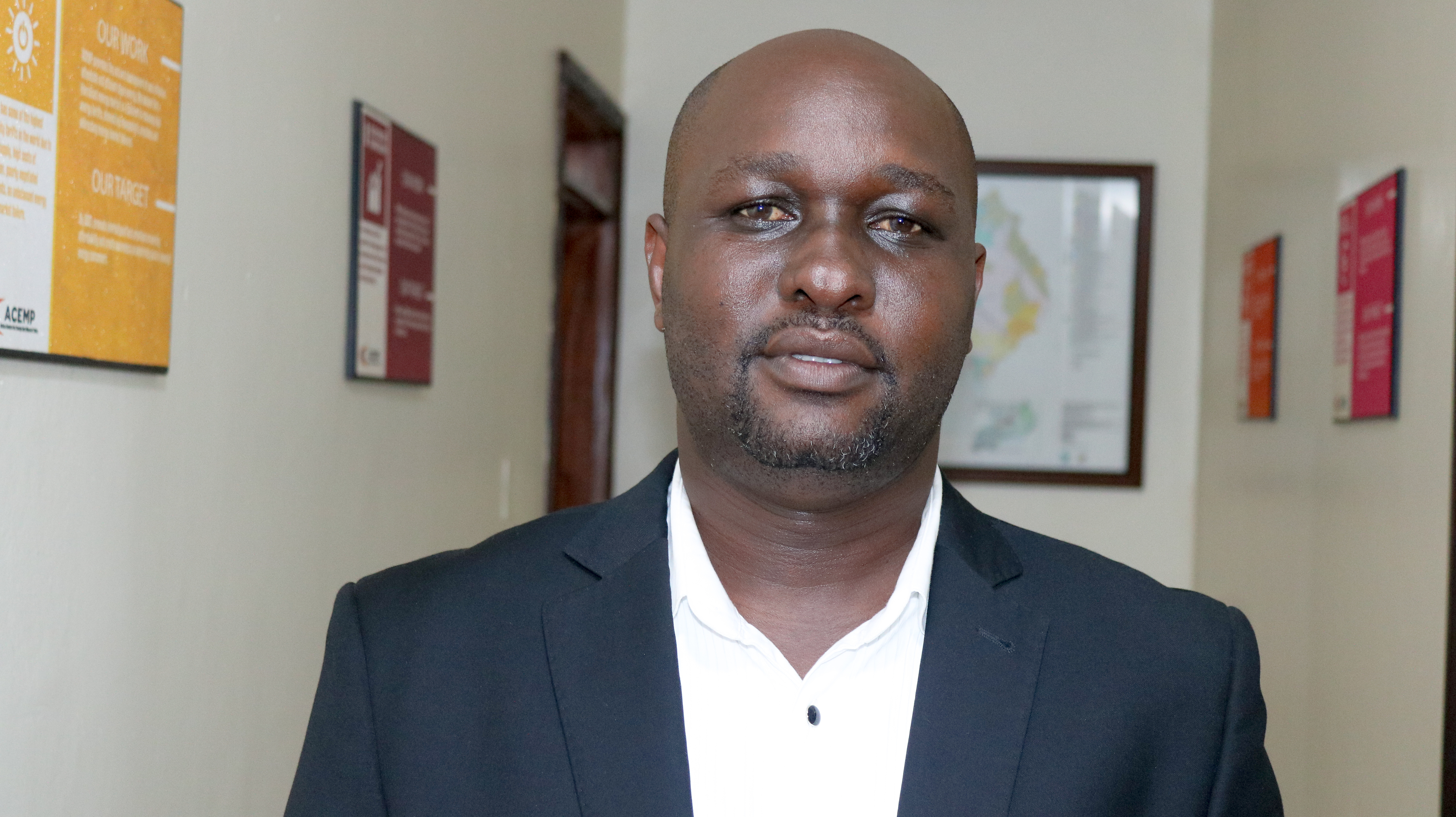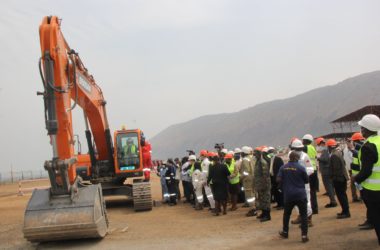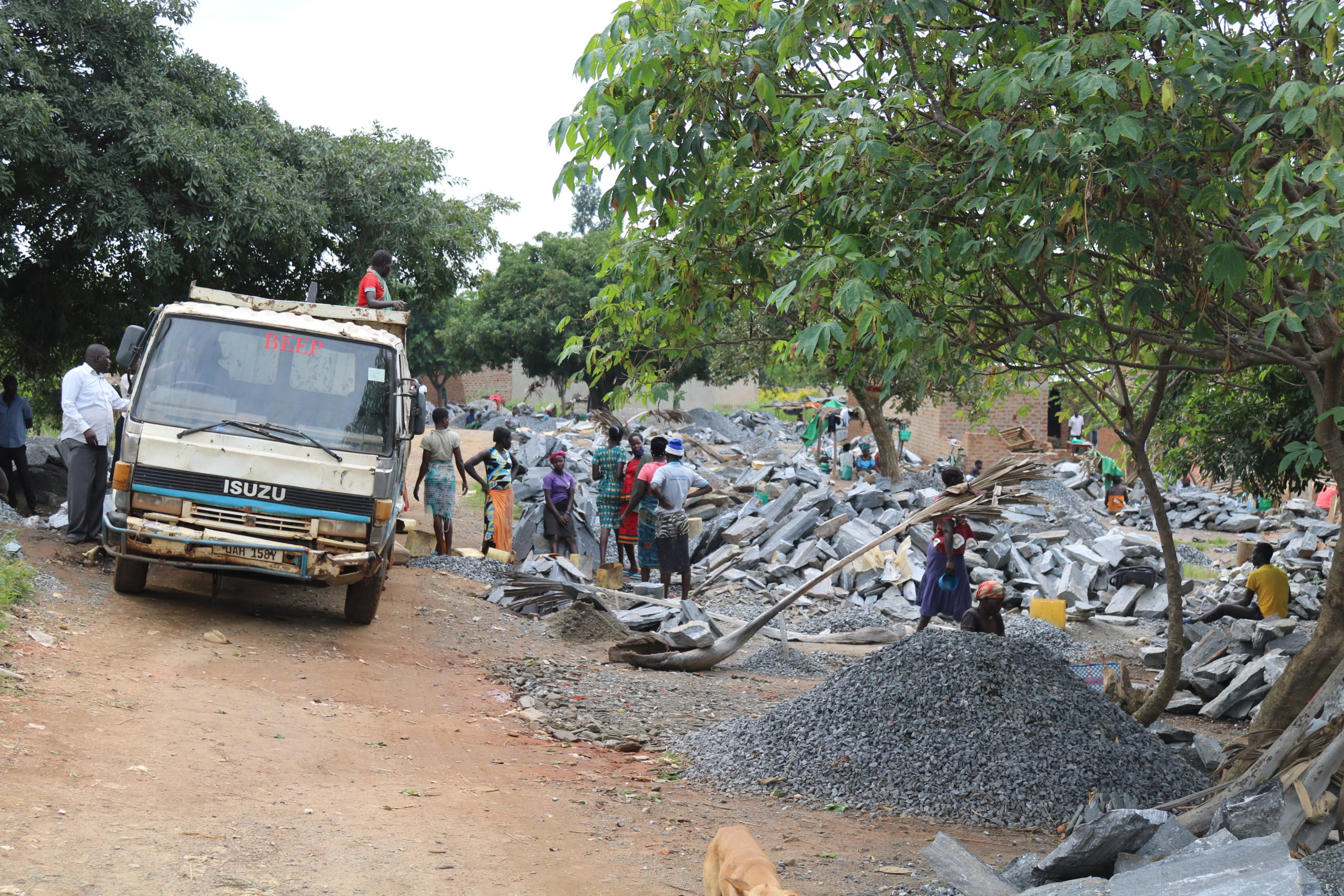At the time I picked interest in mining, these artisanal miners were facing challenges because the large scale miners or licence holders were evicting them from their operational areas.
Ojok Geoffrey Odur is a Lawyer with Gem Advocates who has cut his teeth representing Artisanal and Small scale Miners (ASMs) in Uganda. He was central to the creation of the Rupa Community Development Trust (RUCODET), a community trust created in 2017 to protect communal land in the seven parishes of Rupa Sub County, Moroto District. He has also represented ASMs in Mubende and Buhweju Districts in cases involving evictions and conflicts with licence holders or so-called Large Scale Mining (LSM) companies. He talked to PLEXII’s Chris Musiime about his work promoting ASMs and how his clients can be supported to co-exist meaningfully with LSM companies.
As a lawyer, what drew you to mining?
In 2017, I participated in a study tour to Rwanda that was organised by the Africa Centre for Energy and Mineral Policy (ACEMP). While in Rwanda, I got to learn that communities can benefit from mining activities if they are supported. Rwanda’s mining sector is so well organised and if we (Uganda) borrowed a leaf, it could be useful. I realised that mining is a virgin in area in Uganda and from then on, I picked interest in it.
What is your niche in the mining sector?
My focus is on Artisanal and Small scale Miners (ASMs) because they are not economically empowered and yet are in dire need of legal services. It Is hard for them to get qualified lawyers to represent them.
At the time I picked interest in mining, these artisanal miners were facing challenges because the large scale miners or licence holders were evicting them from their operational areas. You know, there can never be two persons occupying the same mining licence, and because of this, ASMs all over the country were facing evictions by companies that were legally holding mining licenses over the ASM operational areas. The first evictions were in Mubende District (2017) and later in Buhweju District (2019).
I initially started by representing those two groups, but before I could finish representing them, a group of artisanal miners in Karamoja also invited me. All of a sudden, I was overwhelmed by the need and desire by these ASMs to obtain my services.
You say two entities cannot occupy the same licence, but you are finding yourself involved in cases that are exactly about that. Where is the problem?
The conflict is emanating from the artisanal miners. They are informal in nature and in our legal jurisprudence, they have no place or protection. So, you find that people who were deriving livelihoods through mining all of a sudden get locked out by the large scale miners. These large scale companies take up all mining licenses all over the country and nobody else can access those licensed areas. Remember that artisanal miners are informal, they lack knowledge, they lack resources and the process of applying for licences is complex in nature. So, a conflict emerges because the artisanal miners cannot cope with the companies.
But informality doesn’t necessarily mean artisanal miners are illegal, what does Uganda’s legislative framework say about that?
In Uganda, if you are to engage in mining activities, the Constitution or the law of the land requires that you must obtain a licence depending on the nature of mining you are interested in. You are aware, all minerals belong to the Government, therefore for you to get permission to mine, you must get a licence from that very Government. That applies to prospecting, exploration, mining or retention licences. But for the artisanal miners, majorly what is provided for is the location license which does not require substantial expenditure, only ten million shillings. However, even this amount of money is still high for the artisanal miners.
You have said that applying for mining licenses is a complex process, how are you helping the artisanal miners to acquire location licences?
Our first approach has been to support them to organise themselves into associations in order to pool resources to be able to afford those licenses.
But the most critical has been to support them to enter dialogue with large scale miners or license holders. Some of those companies have been able to surrender a portion of their licences to the artisanal miners to carry out their mining activities as well. A case in point is the Sun Belt Mining Group Ltd in Moroto District, they have been able to allow the artisanal miners in Rupa Sub-County to mine within their (the company) mining licence.
In Mubende District, some artisanal miners have been allowed to mine within the licences of other mining companies. But by and large, we go for dialogue although when there is opportunity to get licenses we organise the artisanal miners to pool resources and apply for them. Of course, we recognise that the ASM associations are not legal entities, that is why we look for options like companies or trusts or whatever legal vehicle that is available to enable them get a mining licence.
What is the importance of having a trust especially in areas where minerals are found in land that is held communally?
The importance of a trust is that it gives legal personalities to communal land owners. You realize that where land is owned communally, the best way is to get organised in an association under the Land Act. But whereas that organisation gives you the legal status, mining goes beyond land, it is a commercial venture.
If you are to consider an aspect of sustainability and investment for economic growth, you can get in a trust. All the Area Land Associations can come up together and form a trust which is a bigger organisation bringing together a wider range of stakeholders including elders, land owners and other people in the community. A trust has proper and democratic representation of all stakeholders that have a stake in ownership of the land.
But an investor could bribe the few Trustees to gain access to mineral-rich land.
The trust is governed under the Trustees Act which has parameters to check that kind of weakness. Most Trust members are elected by a wider community and the basis of the election is that the members of the community democratically choose the people they believe have integrity. The Trustees have an obligation to work within the parameters of the interest of the community, guided by a Trust Deed.
The Trust Deed defines how the Trustees should carry out their activities. They also have a Board of Trustees Charter and Code of Ethics. But the most important thing with communal land ownership is that there is respect for customs and culture and that checks any potential excesses by the Trustees.
Some people argue that artisanal mining discourages large scale mining investment. Don’t you think that by promoting ASMs, you are stalling growth of the sector?
That argument may not be right in the sense that the artisans are the first persons who identify prospects for minerals. The challenge is that the large scale miners do not involve the artisanal miners in dialogue. Rather, they see them as competitors and that’s where conflict starts.
The big picture should be to aim for a tripartite relationship involving the Government, the investors and the mining community. This would facilitate effective stakeholder engagement. Each party must respect the other and ensure that their interests are taken into consideration.
Now, if the Government formalizes the artisans, it becomes easy to know their extent, geographical coverage and their activities. Then Government can create special licences or zones for them such that there is a clear distinction and demarcations between the ASM operations and the large scale operations.
Government should also relax the process of surrender of mineral rights. Most investors do not allow surrendering the mineral rights to the artisans and yet they derive their livelihood from mining. If Government does not define artisans and handle them in a manner that promotes their mining operations, they have the capacity to curtail the work of the large-scale miners.
Finally, your firm, Gem advocates, will be providing a pro bono legal aid clinic at the upcoming ASMQ conference in June this year. What should people expect?
Expect that we will be armed with practical solutions for any scenario clients may be faced with because as a law firm, we have taken time to study this industry. We shall have several lawyers who are knowledgeable about the mining sector ready to receive conference participants at our booth. We are ready to give our services to the people.



